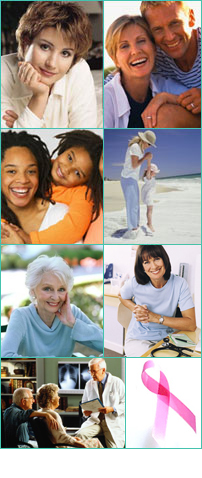Absolutely, yes! The mind, which is one of the most powerful systems in the body, has the power to make us sick and the power to make us well. Emotions can affect the physiological processes in our bodies, including the outcome of various types of cancer.
There is a new field, termed psychoneuroimmunology, that is devoted to the study of the effect of emotions on the brain, the immune system, disease, and health. Your thoughts, emotions, fears, and anxieties can change the chemistry and the function of cells in your body. Molecules called neuropeptides are made in response to our emotional states and function as messengers that react with receptors on cells throughout the body. [1]
Also, emotional ups and downs can influence the levels of hormones in our bodies. For example, extreme stress or depression can reduce a woman’s estrogen level so dramatically that she can stop menstruating. In addition, negative emotions can cause a surge of stress hormones, which impair the activity of the immune system. If we are pessimistic about our changes of recovering from cancer, our immune system and our ability to heal will not be as potent.
In contrast, positive thoughts can promote healing by stabilizing hormone levels, enabling stronger immune responses, and infusing a sense of calm and well-being. If we are optimistic about our ability to recover, this positive energy will help strengthen our immune system and aid in our healing Given a positive attitude and the conviction that therapy can and will help, the impact of therapy likely will be more compelling.
Moreover, emotions affect the activity of natural killer cells, which are specific cells in the immune system that are capable of destroying cancer cells. Stronger activity of killer cells were observed in women with breast cancer who:[ 1]
• Were actively (and verbally expressive about being) committed to overcoming the cancer
• Had good social support from family, friends, and other patients
Weaker natural killer cell activity, more involvement of lymph nodes, and earlier recurrence of disease after treatment were observed in women with breast cancer who: [1]
• Resigned themselves to the disease and the outcome (prognosis) predicted by their physicians
• Were fatigued
• Had poor social support
Women with breast cancer tend to react emotionally according to one of four different patterns of mental and emotional response to the disease: [1, 2]
• Exhibit an attitude that Healthsearches calls "an optimistic, empowered, spirit committed to overcoming illness;" expressed their emotions, become informed about the disease and treatment, feel empowered to take charge of their healthcare, were aware of their own needs, and are optimistic in their belief that they will overcome the disease and survive
• Positive style of denying, either avoiding acceptance of the diagnosis or minimizing the seriousness of the prognosis predicted by their physicians; focus energy on living and function reasonably in daily lives
• Stoically accept the diagnosis, repress emotions related to the diagnosis, do not change their lifestyle, have a passive attitude, and are fatalistic about the prognosis
• Feel helpless and hopeless and allow their lives to be completely disrupted by obsessions with doom
A study conducted over 15 years demonstrated that more than twice as many of the "optimistic, empowered, spirited committers to overcoming illness" and "positive deniers" survived, compared to the stoic acceptors and women who felt helpless/hopeless. Women who were "optimistic, empowered, spirited committers to overcoming illness" had the best outcomes in the study, whereas women who felt helpless/hopeless had the worst outcomes. [1, 2] One of the reasons why the "optimistic, empowered, spirited committers to overcoming illness" had better outcomes may be that their positive attitude evokes a positive response in their immune systems.
Another study concluded that breast cancer tended to progress (i.e., worsen) in women whose attitudes toward their illness included all of the following: [1, 3]
• Not expressing, but rather repressing, negative emotions
• Feeling persistently stressed
• Feeling helpless and hopeless
A third study conducted over 7 years showed that women with recurrent breast cancer who were relatively happier at the time of the start of the study survived longer than their peers. [1, 4]
To use your emotions in helping you overcome breast cancer, take the following steps: [1]
• Allow yourself the time and the freedom to learn about, feel, think about, and, if you wish, modify the style and nature of your emotions. Read Candace Perts’ excellent book, "Molecules of Emotion." Be both open and gentle with yourself during the process of getting in touch with your emotions.
• If feasible, work with a therapist about emotional issues. The more you demystify the emotional issues you are experiencing while facing breast cancer, the more empowered you can become in embracing and utilizing a positive approach to healing.
• Talk with your close support network, including family, friends, and patient support groups.
• Express your feelings in other constructive ways, including writing letters and writing a personal journal or book about your experiences.
As Barbara Joseph, M.D., says in "My Healing From Breast Cancer," her inspiring book about her experiences, recovery, and advice, "Expression of our full range of emotions is healing." [1] Utilize the combined effort of the body, mind, and spirit in the healing process of overcoming breast cancer.
REFERENCES
1. B. Joseph, M.D. "My Healing From Breast Cancer." 1996. New Canaan, Connecticut: Keats Publishing.
2. S. Greer, T. Morris, and K. Pettingale. Psychological response to breast cancer and fifteen year outcome. Lancet. 1990; 1:49-50.
3. M.R. Jensen. Psychological factors predicting the course of cancer. Journal of Personality. 1987; 55 (2):317-342.
4. S. Levy, et al. Survival hazards analysis in first-recurrence breast cancer patients:
Seven-year follow-up. Psychosomatic Medicine. 1988; 50:520-528.
Recommended books on the emotions and the healing power of the mind are:
• Louise Hay’s "You Can Heal Your Life"
• Candace Perts’s, "Molecules of Emotion"
• Dr. Bernie Segel’s "Love, Medicine and Miracles"
|


